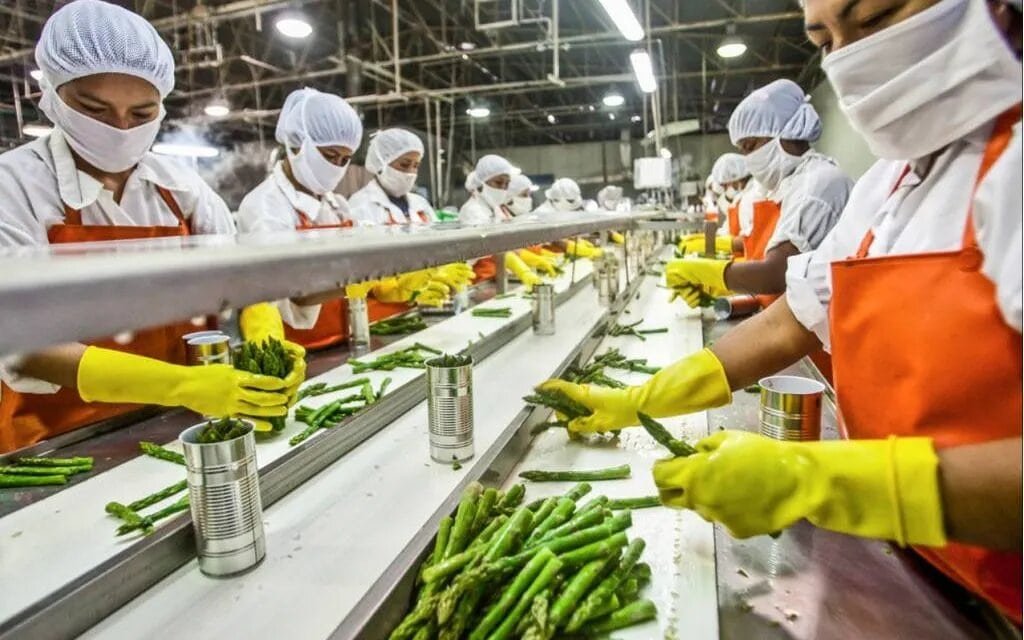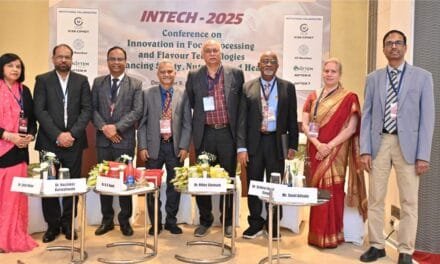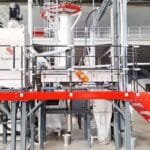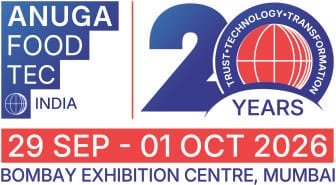Government subsidies play a crucial role in enhancing the fiscal viability of the food processing industry in India. The small-scale food processing sector, in particular, relies heavily on various government subsidy schemes and grants to thrive. This Guide outlines how to find the best government subsidy schemes for small food businesses in India.
List of Government Subsidy Schemes for Small Food Business
Government Support for Small Food Businesses
Both the Central and State Governments of India have introduced numerous subsidy schemes aimed at promoting the growth of small food businesses, especially within the Micro, Small, and Medium Enterprises (MSME) sector. The food processing industry is vital as it transforms agricultural products into value-added food items, making it a promising sector for investment and growth. Currently, India ranks 6th in the global food and grocery market and 5th in the retail market.
India is a powerhouse in agricultural production, being the largest producer of milk, bananas, mangoes, guavas, papaya, ginger, and okra. It also stands as the second-largest producer of wheat, rice, fruits, vegetables, tea, sugarcane, and cashew nuts. Furthermore, it ranks third globally in the production of cereals, carrots, coconuts, chicory, nutmeg, mace, cardamom, and pepper. This diverse agricultural base provides ample resources for the food processing industry.
Key Government Schemes
Pradhan Mantri Kisan Sampada Yojana (PMKSY): This scheme aims to enhance processing capacity, create off-farm employment, and increase value addition to the economy. It has been instrumental in establishing modern infrastructure and efficient supply chain management from farm to retail outlet.
Production Linked Incentive (PLI) Scheme: Recently launched to foster global food champions by incentivising investments in the food processing sector and creating employment opportunities.
Foreign Direct Investment (FDI)
The total FDI inflow into India’s food processing sector from April 2000 to December 2024 reached approximately USD 13.01 billion. This accounts for about 1.87% of total FDI equity inflows, based on data up to December 2023. In recent years, the sector has seen significant growth, with FDI equity inflow of around USD 7 billion between 2014 and 2024. The Indian government facilitates 100% FDI under the automatic and government routes for food processing and retail trading of food products, including through e-commerce, to encourage foreign investment.
Employment Opportunities
The food processing sector is labor-intensive; according to the Annual Survey of Industries (ASI) for 2018-19, it ranked first in terms of total employment within the manufacturing sector. With ongoing government support through various schemes aimed at enhancing infrastructure and providing financial assistance, this sector holds substantial potential for job creation.
In this guide, you will find a list of the best government subsidiy for small food businesses. Most schemes focus on the food processing industry across various sectors. It will help you obtain the financial advantages to start your own organisation.
| Also Read: How to Start a Papad Making Business
| Also Read: How to Start a Profitable Mini Dal Milling Business
# Pradhan Mantri Formalisation of Micro Food Processing Enterprises (PM-FME) Scheme
Operational since 2020-21, this initiative seeks to upgrade and formalise 200,000 micro-informal units while generating approximately 900,000 jobs. It offers a credit-linked capital subsidy of 35% on eligible project costs up to ₹10 lakh per unit.
As of December 2024, the PM-FME scheme has garnered significant attention, with a planned outlay of ₹10,000 crore until 2025-26. The scheme is designed to enhance competitiveness among micro-enterprises in the unorganised segment of the food processing industry. It adopts a “One District One Product” (ODOP) approach to maximise efficiency in procurement and marketing.
The scheme primarily targets unorganised micro food processing units, Farmer Producer Organisations (FPOs), Self Help Groups (SHGs), and cooperatives engaged in food processing. It aims to formalise these entities and enhance their competitiveness in the market.
# Pradhan Mantri Kisan SAMPADA Yojana (PMKSY)
Ministry of Food Processing Industries (MoFPI) has been implementing Central Sector Umbrella Scheme – Pradhan Mantri Kisan SAMPADA Yojana (PMKSY) since 2016-17 for overall growth and development of the food processing sector, including the setting up of Food Processing Industries.
Under the component schemes of PMKSY, special concessions are provided for setting up such industries and Mega Food Parks in the North Eastern States (including Sikkim) and in difficult areas, such as Himalayan States/UTs, State-notified Integrated Tribal Development Project (ITDP) areas, and Islands. These concessions include a lower eligibility threshold during evaluation and a higher rate of grants for selected projects.
The details of higher grants in such areas under relevant component schemes of PMKSY including Mega Food Parks are as under:
| Component Scheme | Permissible Grant-in-Aid in General Area | NER/Himalayan States & UTs/ITDP areas etc |
| Mega Food Parks | Grant-in-aid @ 50% of eligible project cost [Subject to maximum of Rs.50.00 crores per project] | @75% of eligible project cost [Subject to maximum of Rs.50.00 crores per project] |
| Cold Chain and Value Addition Infrastructure | Grant-in-aid for storage infrastructure such as ripening chamber, pack houses, precooling units @35%; for value addition & processing infra including frozen storage @50%; for irradiation facilities @50% of eligible project cost. [Subject to maximum of Rs.10.00 crores per project] | Grant-in-aid for storage infrastructure such as ripening chamber, pack houses, pre-cooling units @50%; for value addition & processing infra including frozen storage @75%; for irradiation facilities @75% of eligible project cost. [Subject to maximum of Rs.10.00 crores per project] |
| Creation / Expansion of Food Processing & Preservation Capacities | Grant-in-aid @35% of eligible project cost [Subject to maximum of Rs.5.00 crores per project] | Grants-in-aid @50% of eligible project cost [Subject to max. of Rs. 5.00 crore per project] |
| Infrastructure of infrastructure for Agro-processing Clusters | Grant-in-aid @35% of eligible project cost [Subject to maximum of Rs.10.00 crores per project] | Grants-in-aid @50% of eligible project cost [Subject to max. of Rs.10.00 crore per project] |
| Creation of Backward and Forward Linkages | Grant-in-aid @35% of eligible project cost [Subject to maximum of Rs.5.00 crores per project] | Grant-in-aid @50% of eligible project cost [Subject to maximum of Rs.5.00 crores per project] |
| Also Read: Unlocking Opportunities: Food Processing Industry in Gujarat
| Also Read: How to Proceed for FSSAI Registration or FSSAI License
# National Horticulture Board (NHB) – Government Subsidy
The National Horticulture Board (NHB) provides capital investment subsidies (a subcommittee under MIDD) for the construction, expansion, or modernisation of cold storage facilities to facilitate the storage of horticultural products. The strategy involves setting up cold storage (with a capacity of 5000 MTto 10000 MT) and its modernisation. Essentially, it is an open-ended credit-connected scheme. To avail of this strategy, you will have to submit an internet application for IPA from the prescribed application format. It is available on the website: http://nhb.gov.in.
# National Horticulture Mission (NHM) – Government Subsidy
The National Horticulture Mission (NHM) offers financial assistance for your cold storage (long-term storage and distribution hubs) around 5000 MT capacity. This scheme falls under the open-ended plot of NHM/HMNEH. It is a subscheme of MIDH. You can avail of the subsidy to charge linked projects at 35% of the capital cost of this project in the general area and 50% in the case of hilly and scheduled regions.
# Small Farmer Agri-Business Consortium (SFAC) Assistance
Cold storage for part of an integrated value chain undertaking. You can apply for a subsidy for a cold storage component that has a total financial cost (TFO) of more than 75%. The aidthe level for subsidy for projects is 25% of capital expenditure and Rs.2.25 crore. And it’s 33.33 per cent and maximum ceiling up to Rs 4 crores in the event of NE, Hilly & Scheduled regions.
| Also Read: Optimizing Cleaning & Maintenance of Food Processing Equipment
| Also Read: Family Rivalry in Food Business – A Case of Parle Agro Industries
# Agricultural And Processed Food Products Export
Under this scheme, you may establish a cold chain enterprise. Essentially, it is part of a process to develop businesses related to scheduled products for export only. One can receive a subsidy of 40%, up to a limit of Rs 75 lakh, for a cold chain unit equipped with mechanical management systems.
# MoFPI Agro Processing Cluster Scheme
The scheme aims at the development of modern infrastructure and common facilities to encourage group of entrepreneurs to set up food processing units based on a cluster approach by linking groups of producers/ farmers to the processors and markets through a well-equipped supply chain with modern infrastructure. The units are set up simultaneously along with the creation of common infrastructure. Agro processing clusters set up by the Project Execution Agency (PEA)/organisations such as the Government./ PSUs/ Joint Ventures/ NGOs/ Cooperatives/ SHGs/ FPOs/ Private Sector/ individuals, etc., and are eligible for financial assistance, subject to terms and conditions under the scheme guidelines.
An agro-processing cluster may be sanctioned in the same district where the CPC of the Mega Food Park (MFP) is located. The promoter(s), who have been sanctioned Mega Food Parks, will be eligible under the scheme only after completion of the MFP. For more details, please click.
# Credit Linked Capital Subsidy Scheme For Technology Upgradation (CLCSS)
Actually, up-gradation of the process and the corresponding Plant and machines helps SMEs to reduce the production cost.
Sole proprietorships, partnerships, cooperatives, private limited companies, and public limited companies can apply this strategy. Basicallya , it aims to facilitate technology upgradation by providing a 15% upfront capital subsidy. To claim a subsidy under CLCSS, eligible MSEs are required to apply online through Primary Lending Institutions (PLIs), from where the MSEs avail aa term loan. You may visit the link for more details.
# Government Subsidy for Small Food Companies in India
The Horticulture Mission provides monetary aid to food processing units for horticulture products. The strategy is designed for the implementation of overall development in horticulture in the Northeast and Himalayan states. The mission covers Small Food Companies in India across all Northeastern states, including Sikkim, and the three Himalayan states of Jammu & Kashmir, Himachal Pradesh, and Uttarakhand (HMNEH). It’s a credit-linked back-ended capital investment aid of 50% of project expenditure (ceiling quantity of project cost is Rs 8 crores ).
The mission addresses entire spectrum of horticulture from production to consumption through backward and forward linkages. Go to MIDH site for more details.
| Also Read: Good Manufacturing Practices in Food Industry
| Also Read: Properly Designed Food Processing Machinery is Crucial
# Venture Capital By Small Farmer Agri-Business Consortium (SFAC)
The Small Farmers’ Agri-Business Consortium (SFAC) provides venture capital support, including equity, for agribusiness projects. Venture Capital Assistance is financial support in the form of an interest-free loan provided by SFAC to qualifying projects to meet the shortfall in the capital requirement for implementation of the project.
Quantum SFAC endorsement of 26 per cent of the promoter’s equity or volume of Rs 50 lakh, whichever is less, in the overall sector. And it’s 40 per cent of this promoter equity or volume of Rs 50 lakhs, whichever is lower, in the Hilly and NE regions. You’ll have to repay this enterprise capital to SFAC following the repayment of the term loan.
Go to SAFC website for Venture Capital Assistance Scheme.
# Venture Capital By Sidbi Venture Capital Ltd. (SVLC)
The Small Industries Development Bank of India (SIDBI) is a major Indian public financial institution that provides venture capital funds for MSMEs. It’s available in Bihar, Uttar Pradesh, Madhya Pradesh, Odisha, Chhattisgarh, Jharkhand, Rajasthan and West Bengal. SMEs can apply for financial assistance under the scheme. The investment size is approximately 5 to 40 crores. However, the MSME Udyog Aadhaar registration is mandatory for implementing this scheme.
The details of the active funds being managed by SVCL are given on its website.
| Also Read: Startups to Play Crucial Role in Growth of Food Processing Industry
# Technology Upgradation And Quality Certification
Ministry of Micro Small and Medium Enterprises (MSMEs) supplies the Financial Support to MSMEs in the ZED (Zero Defect and Zero Effect) Certification Scheme. Basically, the plot supports the Make in India initiative. The plan will help SMEs significantly reduce waste, increase productivity, expand their market from IOP, become vendors for CPSUs, create more IPRs, create new products and processes, and more. All the small food companies in India in the production task and using Udyog Adhar Memorandum may apply.
# Pradhan Mantri Kaushal Vikas Yojana (PMKVY)
The objective of this scheme is to encourage skill development for youth by providing monetary rewards for successful completion of approved training programs.
Under this Scheme, you can get the training and assessment fees from the Authorities. However, you will find help according to the National Skills Qualification Framework (NSQF). Aside from providing training, TCs will even impart training in Soft Skills, Entrepreneurship, Financial and Digital Literacy.
| Also Read: Recent Trends in Confectionery Industry
# Setting Up/Up-Gradation of Quality Control/Food Testing Laboratories
Generally, food testing guarantees it complies with both national and international standards for exports. Additionally, there is a need for testing of imported food products to guarantee they meet the requisite standards and food solutions.
Under the scheme, Central/State Government associations, Government universities (including deemed universities) and all other implementing agencies/private sector organisations/universities (including deemed universities) are entitled to get financial aid for setting up food testing laboratories.
Knowledge Repository
- A Guide for Raising Equity Investment by MSMEs (PDF)
- Development Commissioner, Ministry of MSME (www.dcmsme.gov.in)
- Department for Promotion of Industry and Internal Trade (www.dipp.nic.in)
- Credit Guarantee Fund Trust for Micro and Small Enterprises (www.cgtmse.in)
- National Credit Guarantee Trustee Company Ltd (www.ncgtc.in)
- Technology Development Board (www.tdb.gov.in)
- Biotechnology Industry Research Assistance Council (www.birac.nic.in)
- Government Portal for MSME (Udyam) Registration ( www.udyamregistration.gov.in )
We hope this wide list of Government subsidy schemes will Assist all the Small Food Companies in India in receiving financial assistance.
Citations
- https://pmgovtschemehub.com/pmfme-scheme/
- https://www.investopedia.com/ask/answers/060215/how-do-government-subsidies-help-industry.asp
- https://www.myscheme.gov.in/schemes/pmfmpe
- https://www.investindia.gov.in/siru/indian-food-processing-sector-untapped-growth-opportunity
- https://pib.gov.in/PressReleasePage.aspx?PRID=2043201
- https://pib.gov.in/PressReleasePage.aspx?PRID=2078344
- https://pib.gov.in/PressReleasePage.aspx?PRID=2086345
- https://dfpd.gov.in/Home/ContentManagement?Url=food-sub-hind.html&ManuId=3&language=1
Disclaimer: The information provided here is compiled from various sources and the government schemes may change during the course of time. Therefore, readers are advised to check each scheme individually at their own part. In no event shall the Computuype Media be liable for any direct, indirect, punitive, incidental, special, consequential damages. The picture is for representational purposes only. Pic courtesy: UNIDO

















